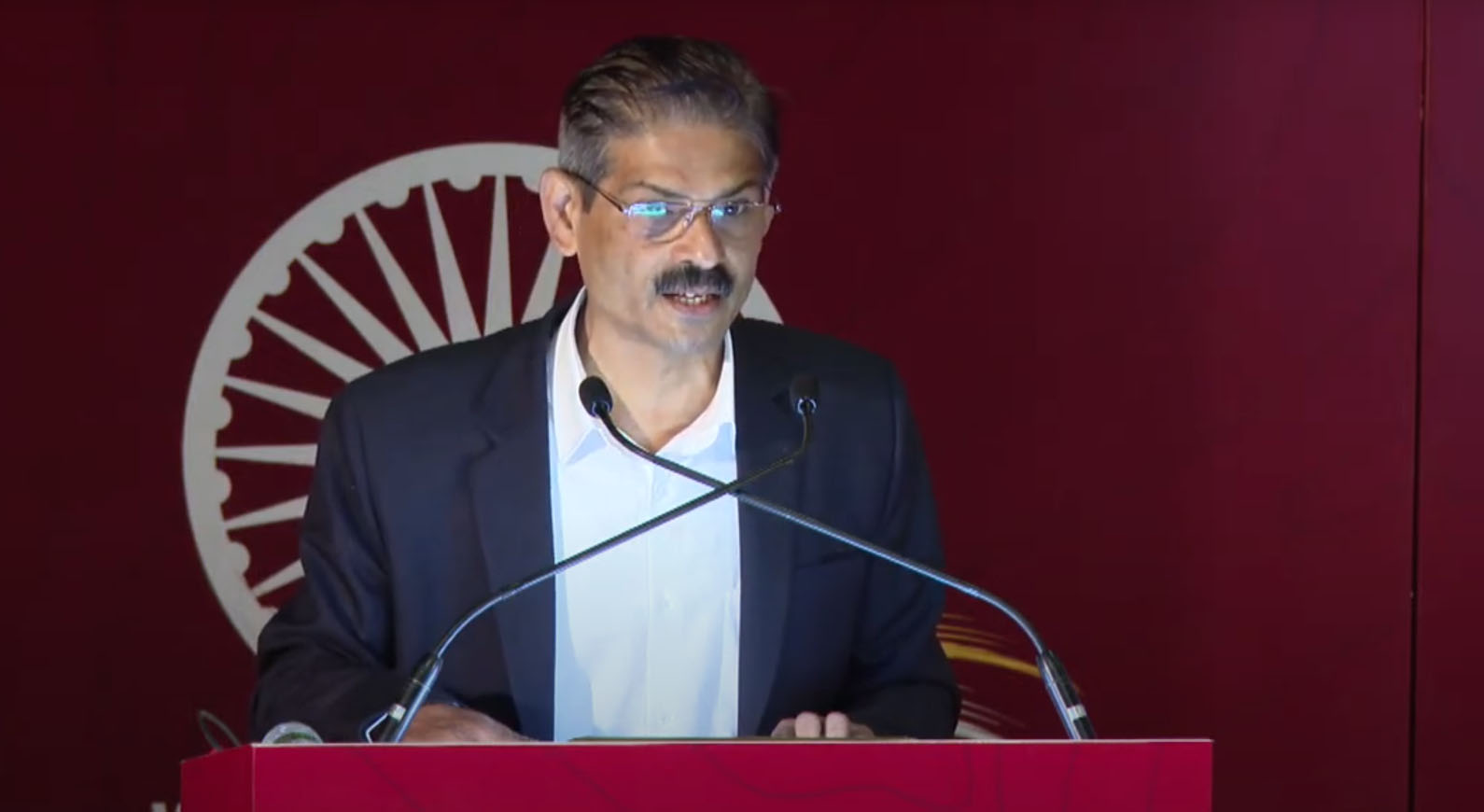news details |
|
|
| Former J-K DGP Swain calls for narrative reformation, structural reforms at Chanakya defence dialogue | | |  Agencies Agencies
New Delhi, Oct 27: Former Jammu and Kashmir Director General of Police (DGP) R.R. Swain, emphasized the urgent need for narrative reformation and structural reforms in Jammu and Kashmir.
Swain described the “battle of narratives” as a core security challenge in the region, where separatist factions have built a misleading narrative, luring citizens with promises of prosperity and autonomy outside the Indian Union.
“The adversary’s message is potent and relentless,” Swain stated. “They promise that breaking away will lead to freedom from corruption, economic growth, and fair governance. We must actively counter this false hope with transparency and a demonstration of the genuine benefits that integration offers,” he said while speaking at the Chanakya Defence Dialogue 2024 in New Delhi.
“Narrative propagated by the terrorist networks is that the local government is a puppet of the Indian state, and those who work for it are stooges and collaborators. There are enough anecdotal evidence available,” he said.
Swain, a 1991 batch IPS officer, retired as DGP of Jammu and Kashmir in September 2024 after an extensive career, including leadership during the 1990s and service as Special DG in J&K’s Crime Investigation Department (CID) post-Article 370 abrogation.
His experience provided a foundation for his discussion on the complexities of social cohesion, economic opportunities, and national security in J&K.
During his address, Swain highlighted the paradox of J&K’s economic landscape, where limited private-sector opportunities coexist with high demand for government jobs. “In a place with economic promise, youth still queue up for jobs with wages as low as 6,000 rupees per month, hoping for security and stability,” he noted.
“This reliance on government jobs has created a dependency that hinders the growth of a sustainable economy.”
He added that while J&K attracts migrant laborers due to relatively higher wages, local youth often aspire to government roles, even in low-paying positions, such as Special Police Officer (SPO) roles that pay approximately 6,000 rupees monthly.
Swain pointed to data revealing that J&K’s government sector contributes to the state’s GDP at four times the national average, overshadowing private sector growth and creating economic stagnation.
He argued that monopolistic business practices further entrench social and economic divides, making it harder for local entrepreneurs to thrive.
He urged policymakers to address these structural challenges and support an “organic, symbiotic private sector” to invigorate economic growth and reduce dependency on government jobs.
Swain outlined the significant role that separatist propaganda plays in fostering social discord, describing it as a “well-oiled narrative machine” that operates continuously to sow distrust of the Indian government. “This is a battle of narratives, and we are, at times, losing,” he warned. “While the adversary’s message is false, they have succeeded in making it believable. The Indian state must dismantle this misleading narrative by showcasing the tangible benefits it brings to the region.”
He stressed that separatists have glossed over government investments and welfare schemes, such as Beti Bachao, Beti Padhao and various employment initiatives, which benefit all communities in J&K.
These efforts, he asserted, often go unnoticed due to the adversary’s grip on the region’s perception. “J&K’s integration with the national economy has supported infrastructure, education, and health, without bias,” Swain emphasized. “It’s time these facts are heard. |
|
|
|
|
|
|
|
|
|
|
|
|
| |
| |
|
|
|
|
 |
|
|
|
|
STOCK UPDATE |
|
|
 |
| BSE
Sensex |
 |
| NSE
Nifty |
|
|
| |
CRICKET UPDATE |
|
|
|
|
|
| |
| |
|
|
| |
|
|
|
|
| |
|
|
|
|
|
|
|
|
|
|
|
|
|
